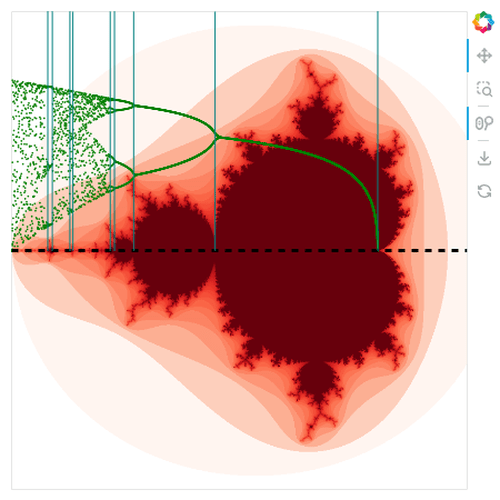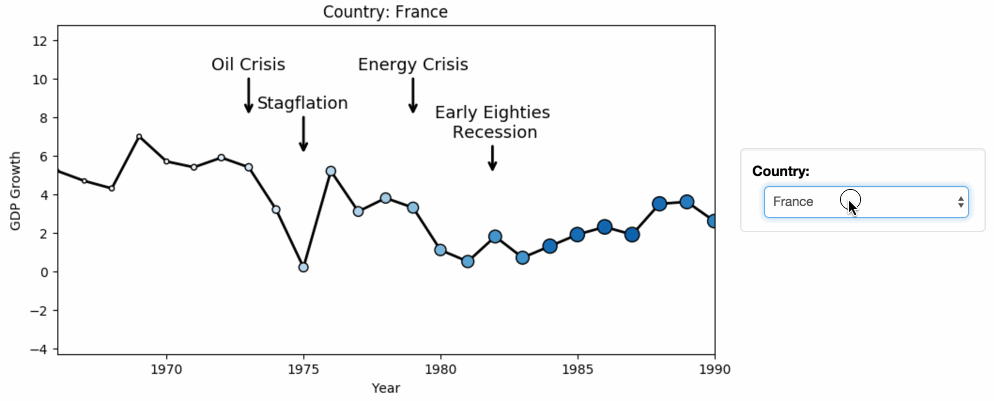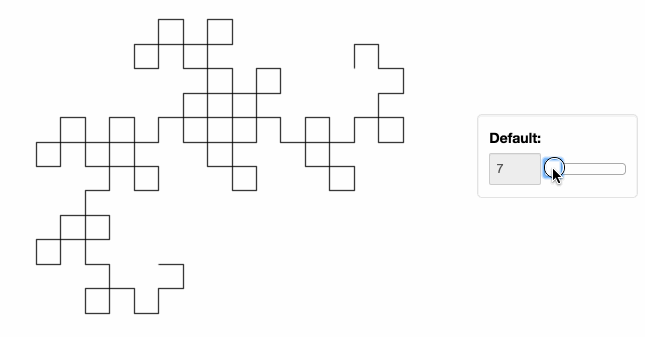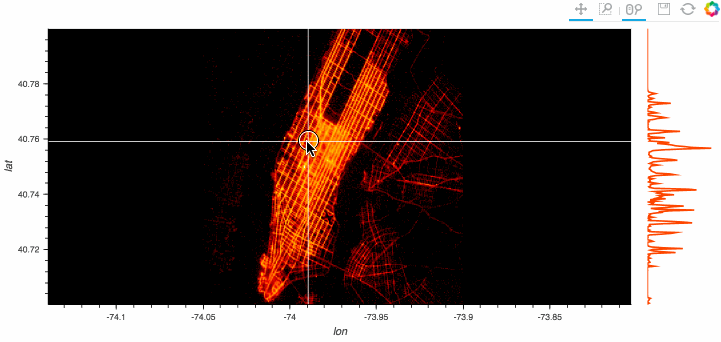Stop plotting your data - annotate your data and let it visualize itself.
HoloViews is an open-source Python library designed to make data analysis and visualization seamless and simple. With HoloViews, you can usually express what you want to do in very few lines of code, letting you focus on what you are trying to explore and convey, not on the process of plotting.
Check out the HoloViews web site for extensive examples and documentation.
HoloViews works with Python 2.7 and Python 3 on Linux, Windows, or Mac, and provides optional extensions for working with the Jupyter/IPython Notebook.
The recommended way to install HoloViews is using the conda command provided by Anaconda or Miniconda:
conda install -c ioam holoviews bokeh
This command will install the typical packages most useful with HoloViews, though HoloViews itself depends only on Numpy and Param. Additional installation and configuration options are described in the user guide.
You can also clone holoviews directly from GitHub and install it with:
git clone git://github.com/ioam/holoviews.git
cd holoviews
pip install -e .
Once you've installed HoloViews, you can get a copy of all the examples shown on the website:
holoviews --install-examples
cd holoviews-examples
And then you can launch Jupyter Notebook to explore them:
jupyter notebook
To work with JupyterLab you will also need the PyViz JupyterLab extension:
conda install -c conda-forge jupyterlab
jupyter labextension install @pyviz/jupyterlab_pyviz
Once you have installed JupyterLab and the extension launch it with::
jupyter-lab
For more details on setup and configuration see our website.
For general discussion, we have a gitter channel. If you find any bugs or have any feature suggestions please file a GitHub issue or submit a pull request.












